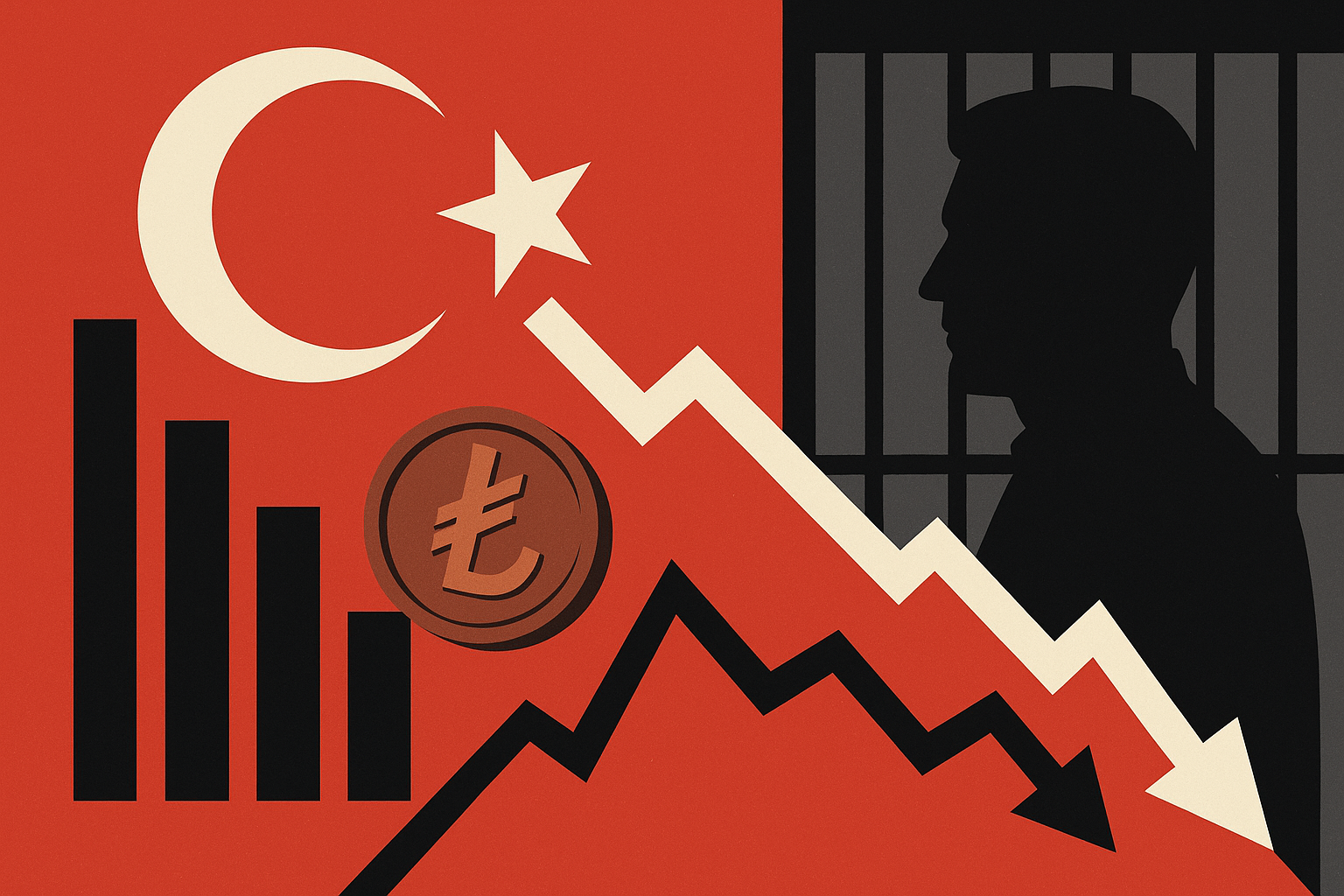Political Shockwaves Hit Turkish Economy
In a dramatic turn of events, Turkey’s financial markets have been roiled by intensifying political instability following the arrest of Istanbul’s mayor. The Turkish lira plunged by 12.7% and the benchmark BIST 100 index fell 8.72%, signaling deep investor unease. This shock underscores how swiftly political risk can reshape the financial landscape, especially in emerging markets—where governance, public sentiment, and market confidence are tightly interlinked.
Political Shockwaves Hit Turkish Economy
Turkey’s political environment took a volatile turn this week when Ekrem İmamoğlu, the mayor of Istanbul and a leading opposition figure, was detained on charges critics describe as politically motivated. The arrest sparked mass protests in major cities and triggered fears of authoritarian consolidation ahead of the 2028 elections.
According to Simply Wall St and InvestorNews, the central bank attempted to intervene with emergency measures, including currency swaps and foreign reserve deployment, yet the lira’s sharp decline suggests markets have lost confidence in both fiscal and political leadership.
Such political instability has long been a red flag for investors, but the magnitude of this week’s selloff is particularly notable given the backdrop of rising global interest rates and already fragile emerging market capital flows.
Why This Matters for Investors
The Turkish market’s meltdown is more than just a domestic crisis—it serves as a stark reminder of the ripple effects political events can have across global portfolios. Turkey, as one of the largest emerging markets, is integrated into many regional ETF products and is a key player in Europe-Asia trade routes. This event raises systemic questions about emerging market stability in politically volatile regions.
Furthermore, the lira’s depreciation compounds inflationary pressures in Turkey, currently hovering near 50%, and complicates the central bank’s already constrained monetary policy toolkit.
Investors with exposure to emerging market bonds, frontier ETFs, or currency-hedged portfolios should closely watch how this situation unfolds, particularly any signs of sanctions, civil unrest, or capital controls.
Future Trends to Watch
- Geopolitical Escalation: The EU and the U.S. have condemned the mayor’s arrest. Potential sanctions or diplomatic fallout could worsen the investment climate.
- Capital Flight Risk: Turkey has already seen a net outflow of $2.1 billion in foreign investment year-to-date (source: metals-wire.net). Expect further outflows if instability persists.
- Monetary Response: Should the central bank further hike interest rates or introduce capital controls, it may stabilize short-term volatility but risk choking domestic growth—a delicate balancing act for policymakers.
Key Investment Insight
Investors should exercise caution with Turkish assets and consider reallocating exposure to more politically stable emerging markets like India or Brazil. Additionally, watching for hedging opportunities in emerging market ETFs or assessing FX exposure in global funds is prudent.
Geopolitical risk must now be elevated to a key factor in portfolio risk assessments, especially as populist tensions and regime uncertainties rise globally. Currency volatility and political events are increasingly dictating short- to medium-term performance in EMs.
The Turkish crisis is a real-time lesson in the importance of integrating political risk into investment decisions. As central banks and world governments respond, the implications for investors could ripple far beyond the Bosporus.
Stay ahead of the curve with MoneyNews.Today—your trusted source for global market insights, sector trends, and investor-grade analysis that keeps you informed and empowered every day.





